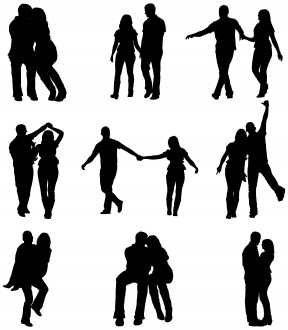Why Do We Fall in Love?
10.27.10
Love is one of the greatest of all mysteries. The origin and makeup of love has baffled humans for centuries leaving us to ponder this human behavior at the deepest level. With love, we comfort, we encourage, we swoon and we seemingly soar to the highest mountains tops.
Romantic love presumably is the most complicated manifestation of love. Theories abound as to why we fall in love. Ideas range from primal physical desires to procreate to the sometimes unrelenting, sensual desires that can entangle women and men.
“Our primal need to reproduce is one of the best known theories on love,” explains Delaura Hubbs, licensed professional counselor and former director of psychology and clinical experiences at Marymount University. “Of course, it does not explain the 52 percent of American adults who do not want to reproduce.”
So if more than half of the adults in the US do not want to procreate, we must examine other theories to explain why we fall in love. There is the concept that suggests that humans have an innate drive toward wholeness – a state that some believe may be more difficult to achieve when flying solo. So in an effort to fill the gaps, both women and men may seek love interests to feel complete.
And then there is the premise that we fall in love to meet a physical desire. But experts warn there is a distinction between sexual desire and true love. Professor Arthur Aron at the State University of New York at Stony Brook explained in 2008 that true love goes deeper than sex. He stressed that sexual desire is largely based upon perception and imagination. Whereas love encompasses, capacities such as thinking and memory, which are important for appraising personal characteristics.
Those feelings of sexual drive and infatuation tend to flee when trouble arises in the relationship. Hubbs suggests the “choice-based love” approach. She explains that true, mature love comes down to a matter of choice. “Think of it this way,” she says. “If we fall in love through fate or some other mechanism outside of ourselves, we then have no control over when or how we will fall out of love. If, on the other hand, we make the choice to love, even on the occasion when the other person’s behavior is unlovable, we empower ourselves to use our thoughts, actions and words to build a love that lasts a lifetime.”
Written by: Tracy Ray






